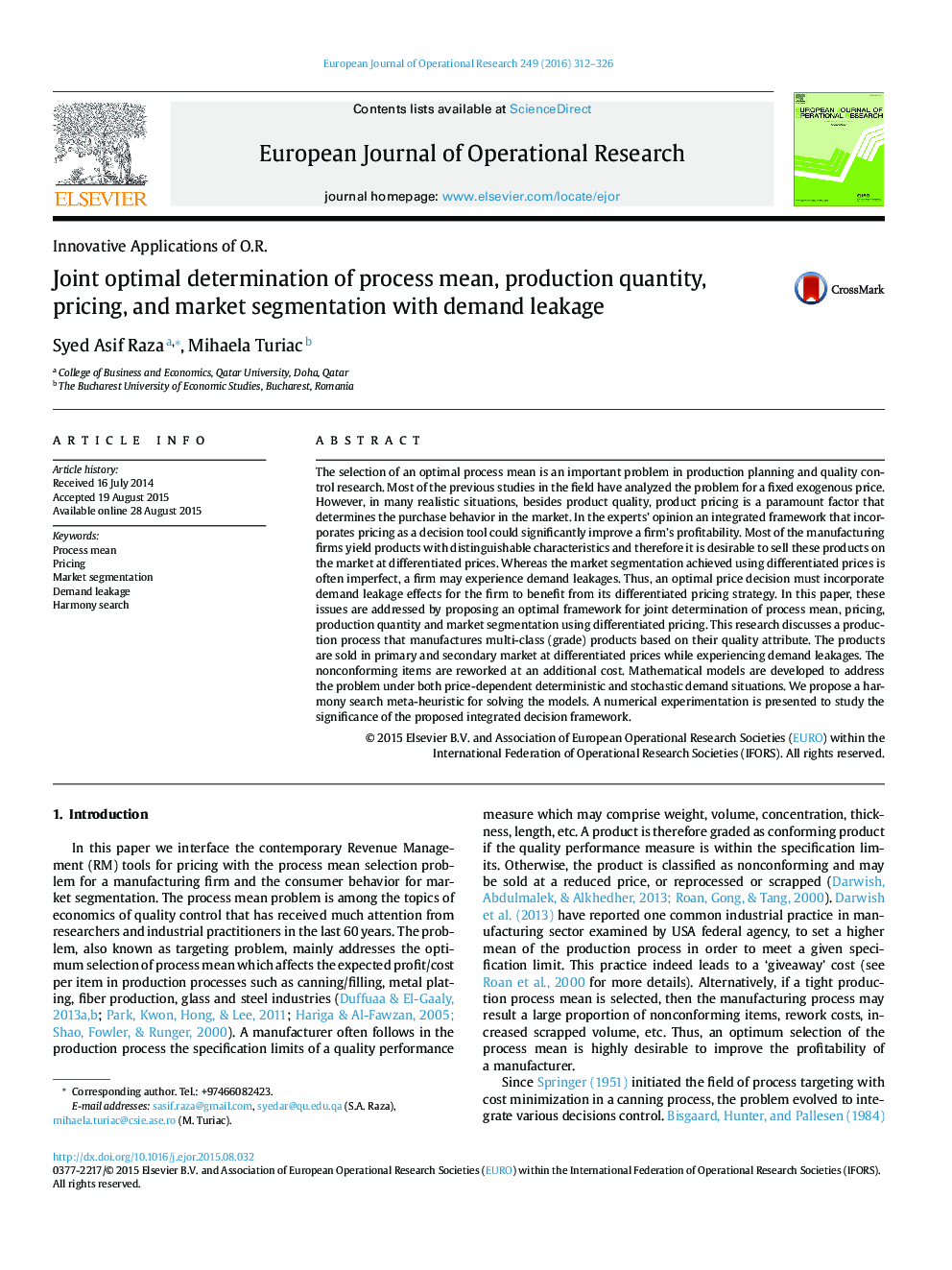| Article ID | Journal | Published Year | Pages | File Type |
|---|---|---|---|---|
| 479445 | European Journal of Operational Research | 2016 | 15 Pages |
•Developed novel mathematical models for process targeting problem.•Integrated framework for process mean, pricing, production and market segmentation.•Considered the demand leakage effect into market segmentation.•Develop harmony search meta-heuristics to solve the problem.•Numerical experimentation to highlight the proposed integrated framework.
The selection of an optimal process mean is an important problem in production planning and quality control research. Most of the previous studies in the field have analyzed the problem for a fixed exogenous price. However, in many realistic situations, besides product quality, product pricing is a paramount factor that determines the purchase behavior in the market. In the experts’ opinion an integrated framework that incorporates pricing as a decision tool could significantly improve a firm’s profitability. Most of the manufacturing firms yield products with distinguishable characteristics and therefore it is desirable to sell these products on the market at differentiated prices. Whereas the market segmentation achieved using differentiated prices is often imperfect, a firm may experience demand leakages. Thus, an optimal price decision must incorporate demand leakage effects for the firm to benefit from its differentiated pricing strategy. In this paper, these issues are addressed by proposing an optimal framework for joint determination of process mean, pricing, production quantity and market segmentation using differentiated pricing. This research discusses a production process that manufactures multi-class (grade) products based on their quality attribute. The products are sold in primary and secondary market at differentiated prices while experiencing demand leakages. The nonconforming items are reworked at an additional cost. Mathematical models are developed to address the problem under both price-dependent deterministic and stochastic demand situations. We propose a harmony search meta-heuristic for solving the models. A numerical experimentation is presented to study the significance of the proposed integrated decision framework.
